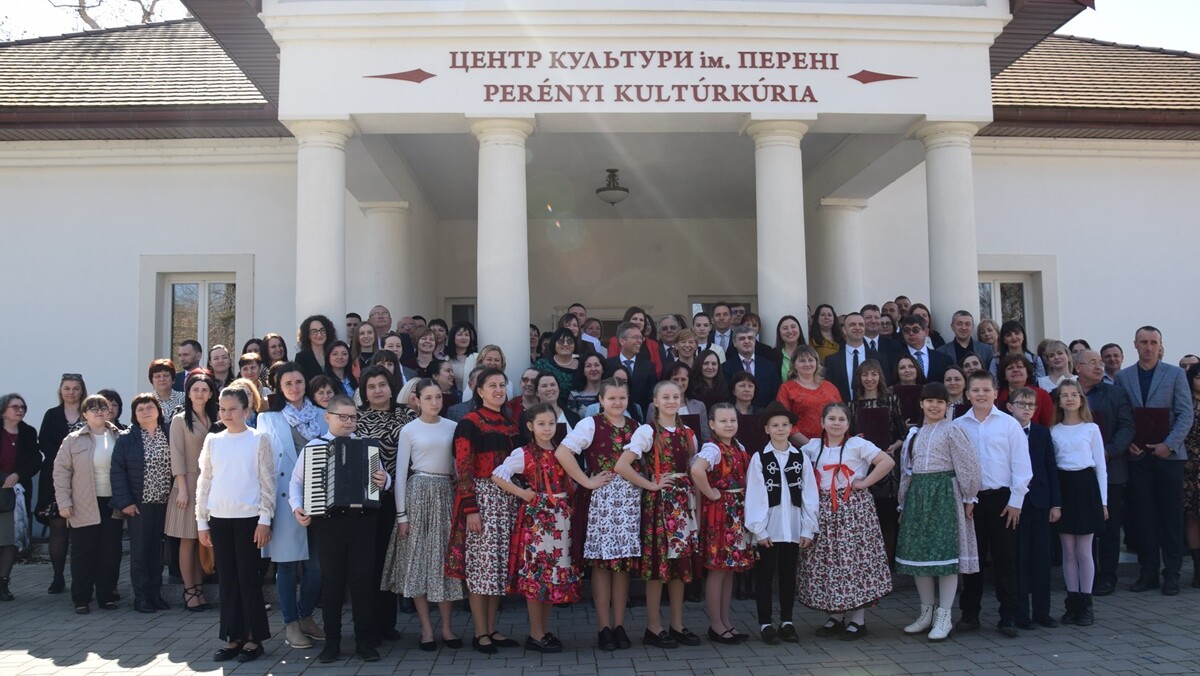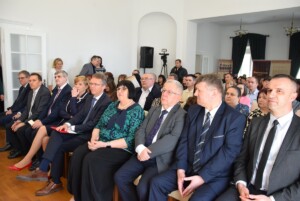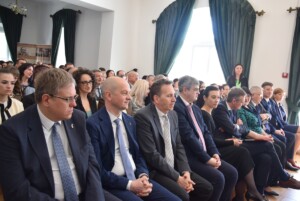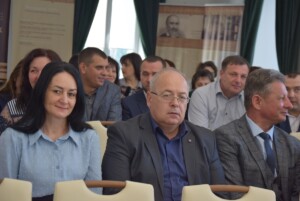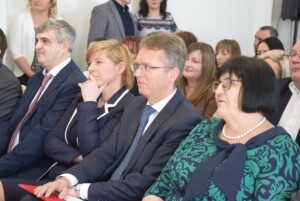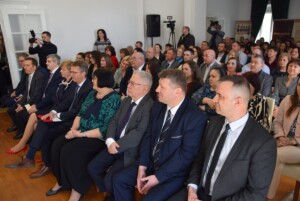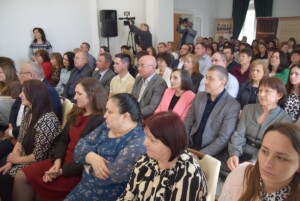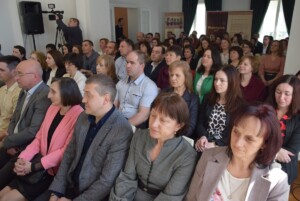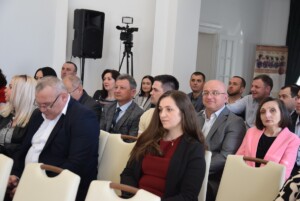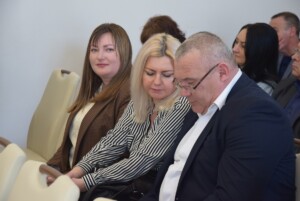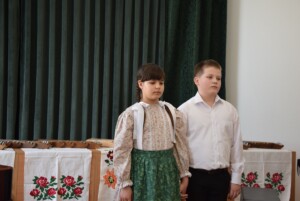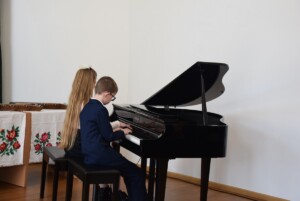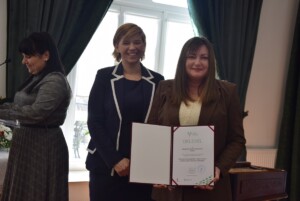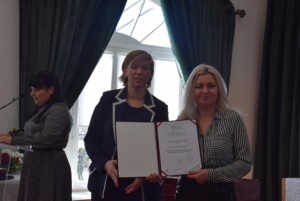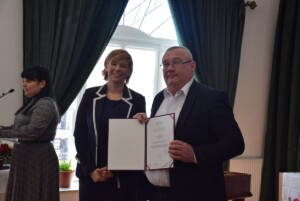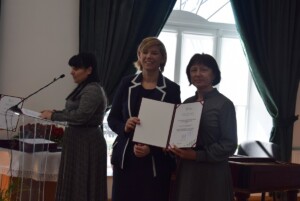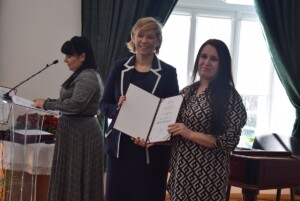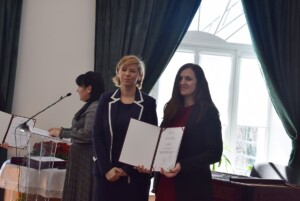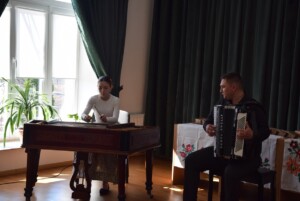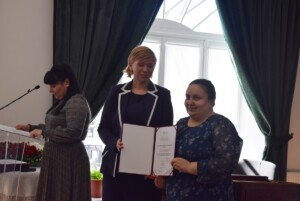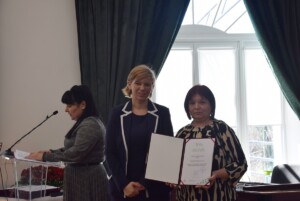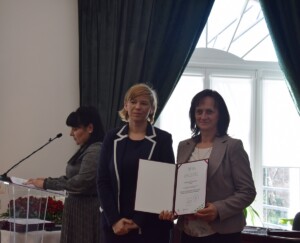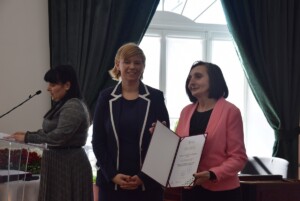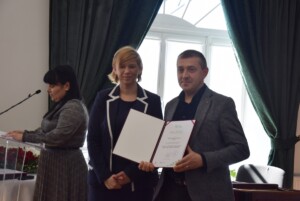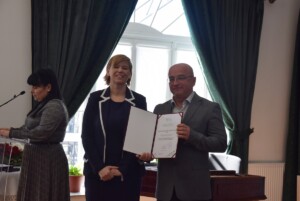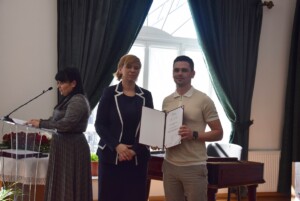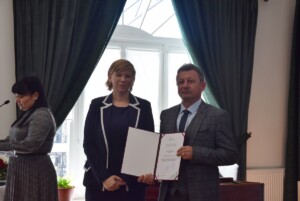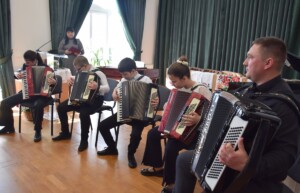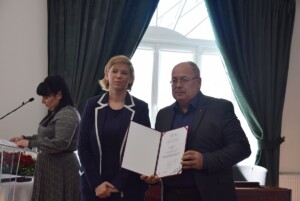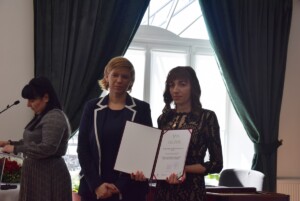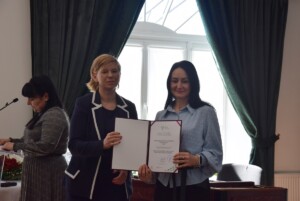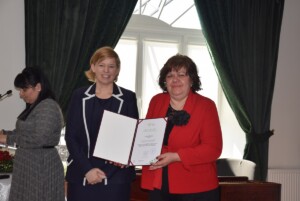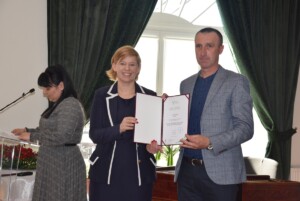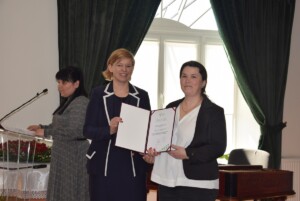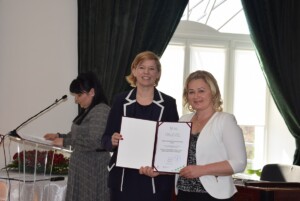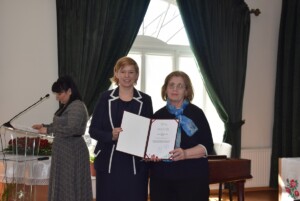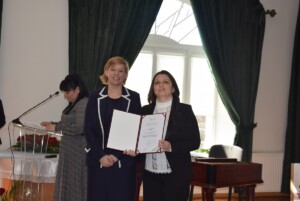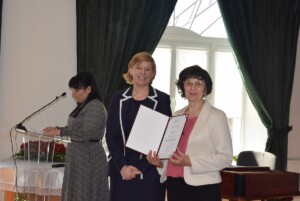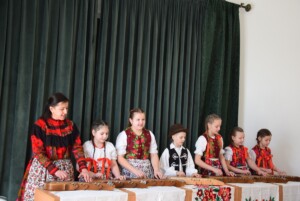The Köbüki Scholarships were awarded at the Perényi Cultural Mansion
The aim of the Köbüki Talent Management Teacher Scholarship is to recognize and support the professional activities of teachers actively engaged in talent development. Out of the 136 applicants from abroad, 93 were from Transcarpathia.
The scholarships were ceremoniously awarded on March 22 at the Perényi Cultural Mansion
At the beginning of the event, Ágnes Bíró and Ferenc Bíró, students of the Tulipán Tanoda Hungarian School of Folk Music and Folk Art performed folk songs from Gyimes and Nagykálló.
At the beginning of his welcome speech, Balázs Hankó, Minister of Culture and Innovation, emphasized that we all long for and await peace, for everyday life to return to normal, and for our young people and families to live in peace and security.
“When we proclaim the unity of the Hungarian nation, we are simultaneously helping and supporting every Hungarian family and young person who represent and signify the future and strengthening of our nation. That is why, when we launched the 2030 program for Hungarian colleges and universities in the Carpathian Basin, our goal could be nothing less than ensuring a future for Hungarian youth and talents,”
he emphasized.
He also emphasized that the first stop of this program was chosen to be Beregszász because, when thinking about Hungarian higher education institutions, it is clear that “we arrive first at the place that faces the greatest challenges, that asks for and can provide the most support—namely, Beregszász, at the Ferenc Rákóczi II Transcarpathian Hungarian College of Higher Education.” He added that Rákóczi College is not just an institution but a key pillar of the Hungarian nation and a cornerstone of its strengthening. It brings together young people and college students, supports Hungarian-language educational institutions in the region, helps schools, lyceums, vocational institutions, and continues talent development even in kindergartens.
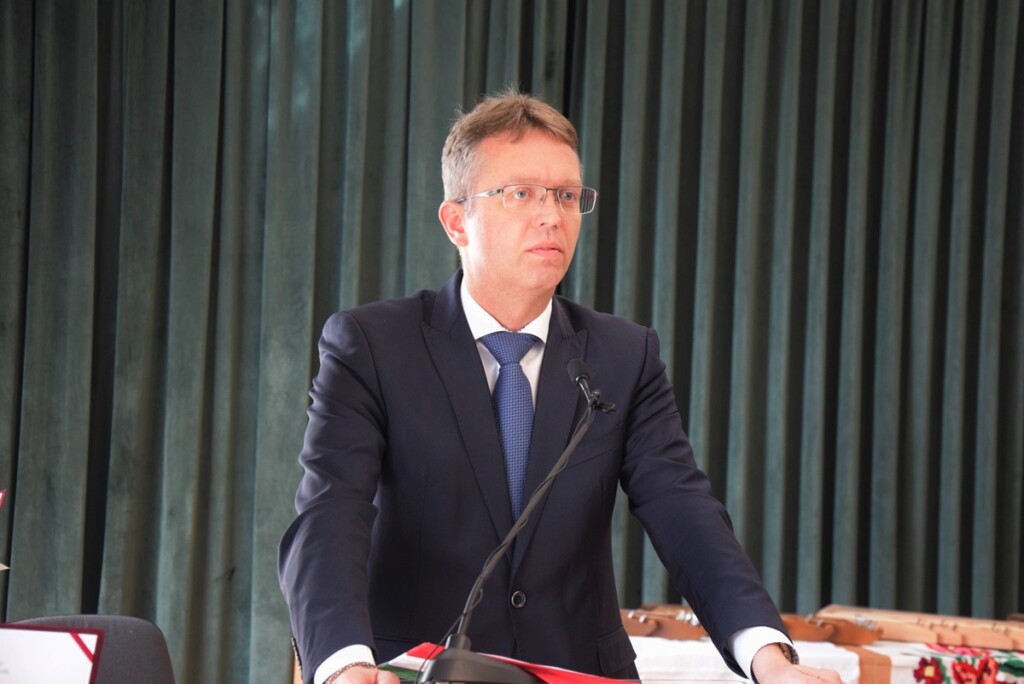
“When we look at the college, our shared pride is that over the past five years, no fewer than 33 undergraduate and master’s programs have been launched. When we look at the college, we take pride in the fact that its network includes more than 2,000 young people. A key indicator of the renewal in recent years is that 70% of the faculty members hold academic qualifications. And if we position the college within the Ukrainian higher education system, we should indeed be proud that it ranks 112th among nearly 500 higher education institutions. Moreover, we should take pride in the fact that among more than 100 private higher education institutions, it is ranked among the top ten, specifically in 9th place. But when we plan for the future, because we believe in the future and in a return to normality, we must plan the future together. And there is no more glorious or noble goal than setting the objective, on the 350th anniversary of Ferenc Rákóczi’s birth, for the college to become a university. Therefore, we will provide all the support—through doctoral schools, research and innovation grants, and support for both teachers and students—so that the college can achieve its goal of becoming a university,”
he said, concluding by adding that the realization of this goal also requires the teachers of Hungarian schools, as the future college and university students are being shaped under their guidance.
“The Carpathian Basin is the land of talent, and we cannot allow even a single talent to go to waste. This is the credo of the National Talent Program, which aims to support institutions, organizations, teachers, and educators across the country and the entire Carpathian Basin who help young people develop their talents”
– emphasized Veronika Varga-Bajusz, Secretary of State in charge of higher, vocational and adult education at the Ministry of Culture and Innovation, highlighting that one of the explicit goals of the Köbüki Program is to acknowledge the work of educators who dedicate their time and energy to nurturing talented children.
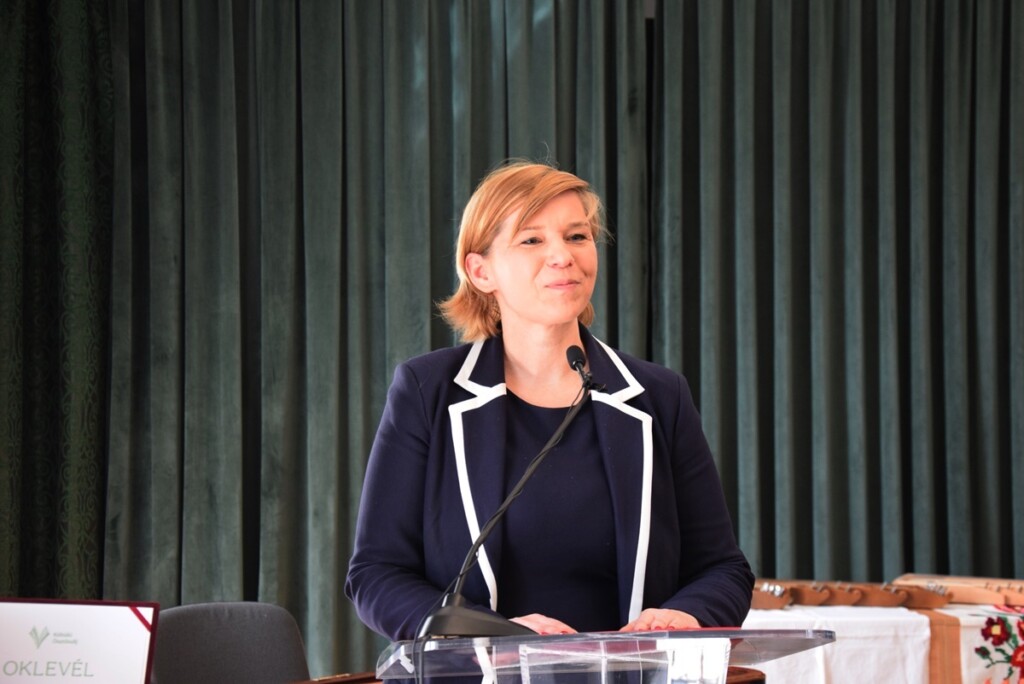
“The program has 90 awardees in Transcarpathia, which is no small number. This also means that not only is talent development taking place here, but also the preservation of values,”
she added, congratulating the awardees.
“Opportunity makes the thief – as the saying goes. I believe it’s not just the thief but also the scholar, because if the conditions for nurturing talent are not in place, the child will never be able to fulfill their potential. I would like to take this opportunity to thank the staff of the Ministry of Culture and Innovation for allowing us to be part of their talent programs for ten years now, thereby reaching even more talented students. I also extend my gratitude to the ‘GENIUS’ Charity Foundation and its director, Natália Váradi, whose perseverance has resulted in us being able to recognize so many talented children across Transcarpathia today,”
said Ildikó Orosz, president of the Ferenc Rákóczi II Transcarpathian Hungarian College of Higher Education and the Transcarpathian Hungarian Pedagogical Association.
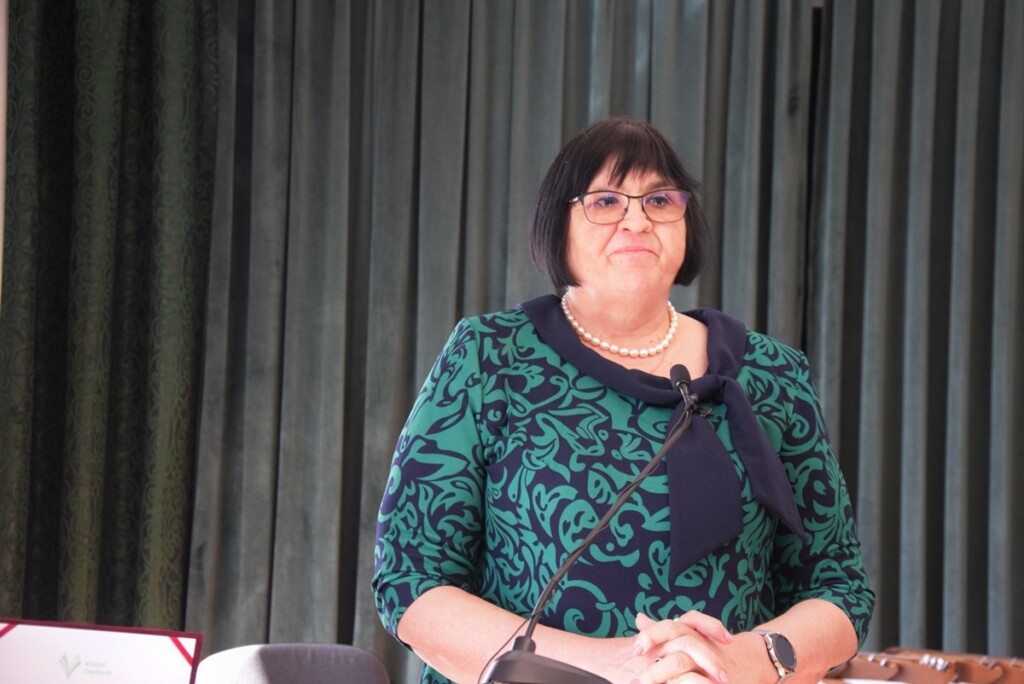
“»As we teach today, so will tomorrow be« – said Albert Szent-Györgyi. I believe this is true. In your hands, dear teachers, lies the future, as you hold the hands of children and guide them. The spirit of the school is also the spirit of goodwill, mutual respect, and human solidarity,”
congratulated the teachers Natália Váradi, head of the Adult Education Center at the Rákóczi College and director of the “GENIUS” Charity Foundation.
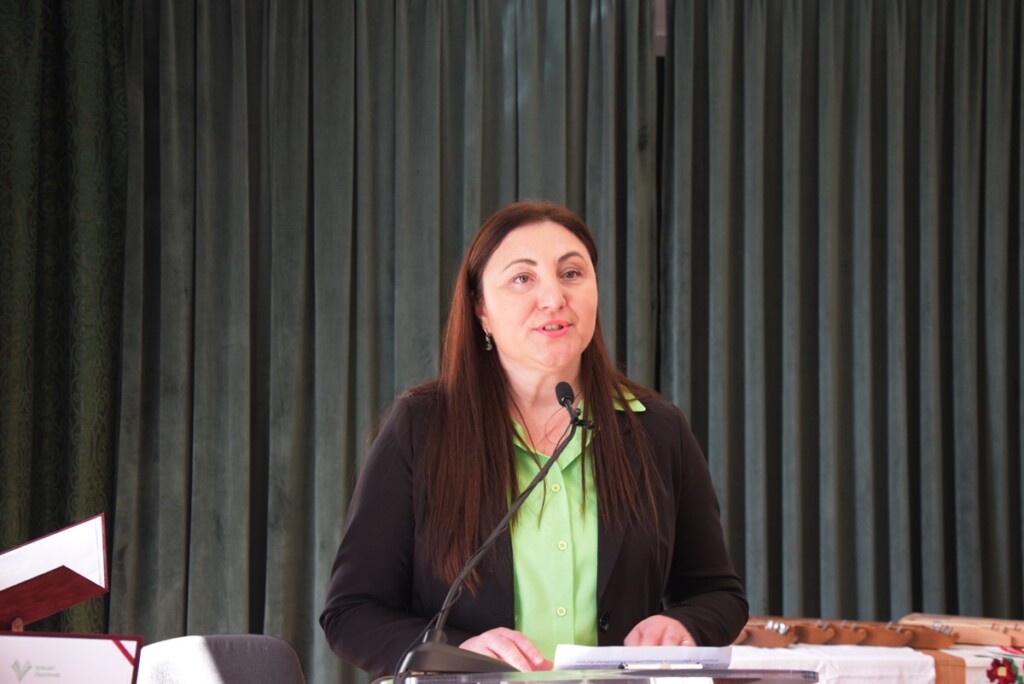
After the greetings, Benjámin Bobály and Anna-Bella Lőrinc, students of the Zoltán Kodály Fine Arts School in Beregszász, performed Aram Khachaturian’s “Galop.” Their mentor was Mária Roszoha.
Following this, the teachers from the Gábor Bethlen Lyceum in Beregszász, the Lajos Kossuth Lyceum in Beregszász, the István Széchenyi Lyceum in Csap, the High School in Eszeny, the Rákóczi College’s Vocational High School, the Lajos Kajdi High School in Gecse, and the High School in Gyula received their certificates.
After the awarding, Mirjam Mester, a student of the Tulipán Tanoda Hungarian School of Folk Music and Folk Art, performed a csárdás from Galgamente. Her mentor was Szilvia Kurendás, and the concertmaster was Bertalan Halász.
After the performance, teachers from the Sándor Sztojka Greek Catholic Lyceum in Karácsfalva, the Transcarpathian Hungarian Lyceum’s training site in Nagydobrony, the János Arany Lyceum in Kaszony, the Ferenc Egry Lyceum in Kisgejőc, the Secondary School No.3 named after Ferenc Rákóczi II in Munkács, the Szent István Lyceum in Munkács, the Nagydobrony Village Council’s Lyceum, the Reformed Lyceum in Nagydobrony, and the High School in Nagygejőc received their certificates.
Next, the accordionists of the Tulipán Tanoda Hungarian School of Folk Music and Folk Art performed melodies from Visk. Their preparatory teachers were Nikoletta Sipos and Bertalan Halász.
Following this, the teachers from the High School in Papi, the Hungarian-language Reformed Lyceum in Péterfalva, the Ferenc Kölcsey Primary and Secondary Education Institution in Péterfalva, the Secondary School in Salánk, the High School in Som, the Hungarian-language Lyceum in Técső, the Tulipán Tanoda Hungarian School of Folk Music and Folk Art, the Gábor Dayka Lyceum in Ungvár, the Secondary School in Verbőc, and the Ferenc Kölcsey Lyceum in Visk received their certificates.
Finally, the Dobronyi Rózsák zither ensemble performed folk songs from the Bereg region. Their preparatory teacher was Katalin Mészár.
Anita Kurmay
-
This article is also available in
Українська
Magyar

